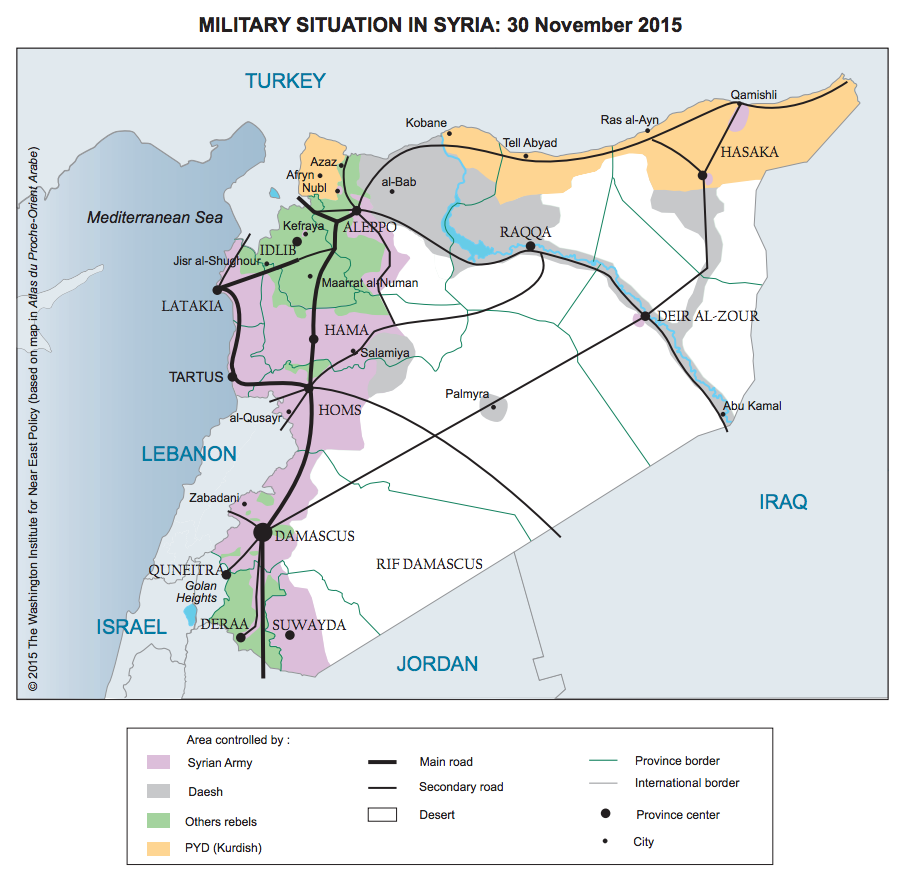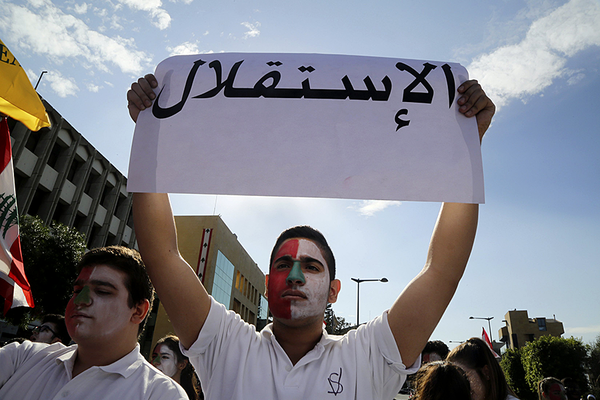Despite political and infrastructure challenges, Beirut is investing in local tech entrepreneurs and hoping to become the startup capital of the region, Dana Ballout reports. Photo: Getty Images
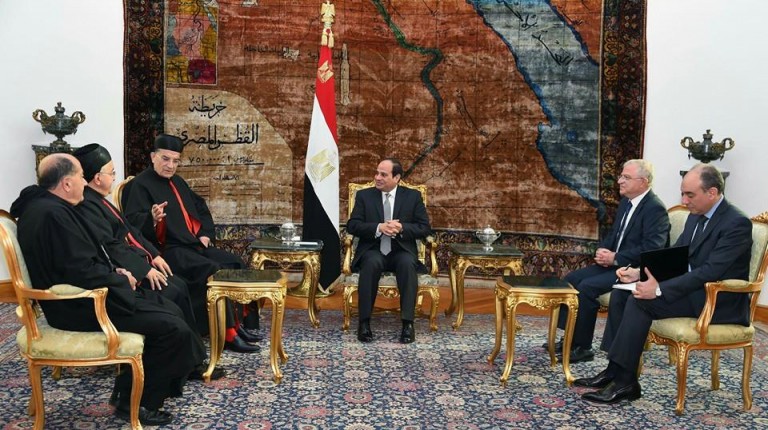
President Abdel Fattah Al-Sisi met the head of Lebanon’s Maronite Church on Sunday, stressing the importance of continuing efforts to achieve national unity and select a president for Lebanon.
Al-Sisi’s meeting in Cairo with Patriarch Bechara Boutros al-Rahi was also attended by the Lebanese ambassador to Egypt, Khalid Zaiada, according to a presidency statement.
According to the statement, the two sides affirmed the good bilateral relations between Egypt and Lebanon, while Al-Sisi expressed Egypt’s interest in maintaining the stability and the security of Lebanon. He said there was a need to resolve divisions and unite around a president.
Fabrice Balanche, The Washington Institute For Near East Policy
A population shortfall
Syria currently has around 16 million residents — a far cry from the 2010 UN projection that the population would reach 22.6 million by the end of 2015. The birth deficit and excess mortality (violent and natural) have reduced the natural population growth by half since 2011. Even if refugees are added to the current population figure, the total would be only 21.3 million, or 1.3 million less than the prewar projection.
The Office of the UN High Commissioner for Refugees (UNHCR) has registered 4.2 million Syrians thus far, but that figure undervalues the actual number of refugees by at least 20%. Some refugees refuse to register for fear of being arrested and taken back to Syria (as is happening in Lebanon), while many wealthy refugees do not see the point of registering. So a more realistic estimate of total refugees is 5.3 million.
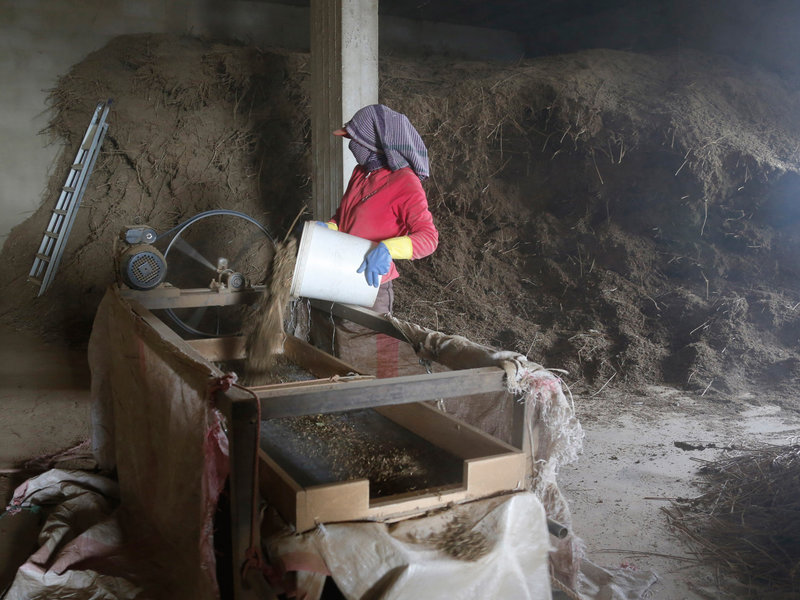
NPR news
In a village in Lebanon’s Bekaa Valley, Syrians from Raqqa have been coming to harvest cannabis for almost a decade. Now, Raqqa is under Islamic State control and the border crossing is more difficult than ever.
One woman recently risked her life for work in Lebanon. Like the hundreds of harvesters in the village, she’s not simply a migrant from Syria — she’s from the ISIS capital of Raqqa, some 300 miles away.
NPR met her during hashish production time in a dimly lit shed on a winding village street. Inside, the smell of the cannabis derivative was pungent, and clouds of olive-green dust filled the air. Um Muhammad used her nickname, meaning Mother of Mohammed, for fear of what Raqqa’s puritanical rulers might do to her family back home if they knew she was working in drugs.
By
Beirut, Lebanon — A paralyzing impasse has left Lebanon without a president for 18 months.
It has crippled the government’s ability to function, and many analysts believe Lebanon faces economic collapse unless a president can be elected and state institutions once again allowed to operate properly.
Now a power-sharing agreement between bitter political rivals – both sons of murdered fathers – could end the impasse.
That’s the easy part of this story. The rest is Shakespearean, with a touch of “The Godfather” thrown in.
The proposed pact, which would install the scion of one dynasty as president, with another becoming prime minister, has reawakened ghosts of murder, assassination, and revenge from Lebanon’s blood-soaked past. It asks a universal political question, one that is felt acutely here: Can the past be put aside for the sake of the future?
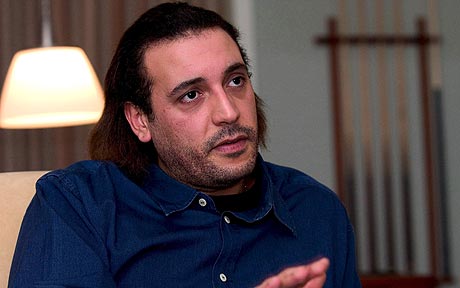
AP
A son of Libya’s late leader Moammar Gaddafi was briefly kidnapped in Lebanon by militants demanding information about the fate of a Shiite cleric who went missing in Libya decades ago, a security official and local TV stations said on Friday.
Hannibal Gaddafi appeared in a video aired late Friday on local Al-Jadeed TV saying anyone with information about Imam Moussa al-Sadr should come forward. Gaddafi appeared to have been beaten up and had black eyes but said in the video he is "in good health, happy and relaxed."
Later Friday, a senior security official said police collected Gaddafi from the northeastern city of Baalbek where he was being held by the Shiite militants, whose affiliation was not immediately known. The official, who spoke on condition of anonymity in line with regulations, said Gaddafi was being brought to Beirut.
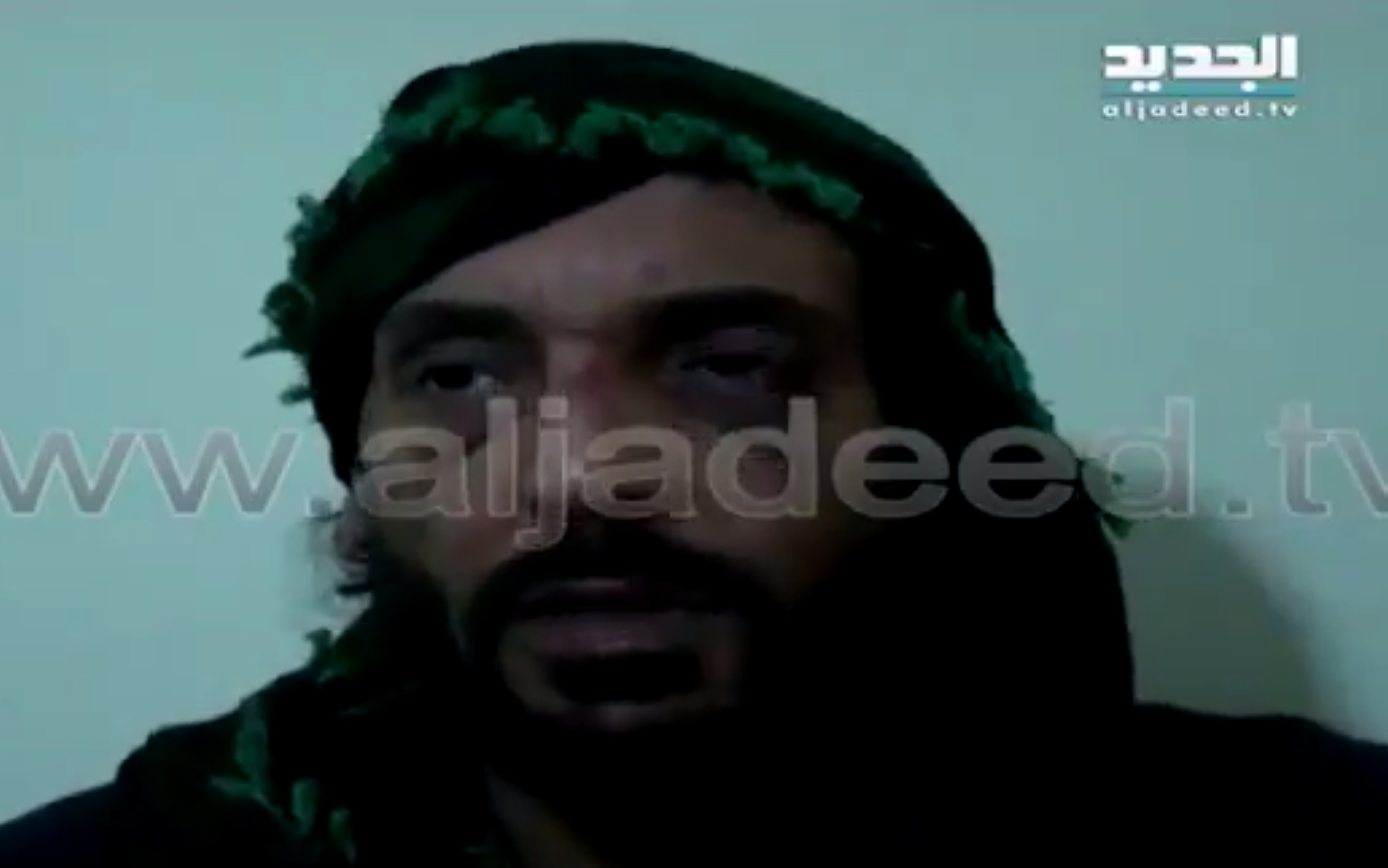
One of Muammar Gaddafi’s five surviving children was kidnapped in Lebanon on Friday.
Hannibal Gaddafi, who was the late Libyan dictator’s fifth son, appeared in a video broadcast on Lebanese television exhorting Libyan officials to release information about the fate of Musa Sadr, the prominent Lebanese Shi’ite cleric and communal leader who vanished when Muammar Gaddafi invited him to Libya in 1978.
Gaddafi was only held briefly, and freed near the eastern Lebanese town of Baalbek before returning to Beirut, according to the AP.
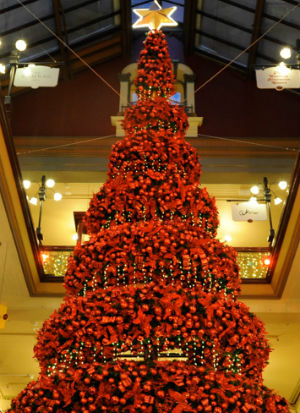
Catholic Online presents what Christmas trees look like around the world!
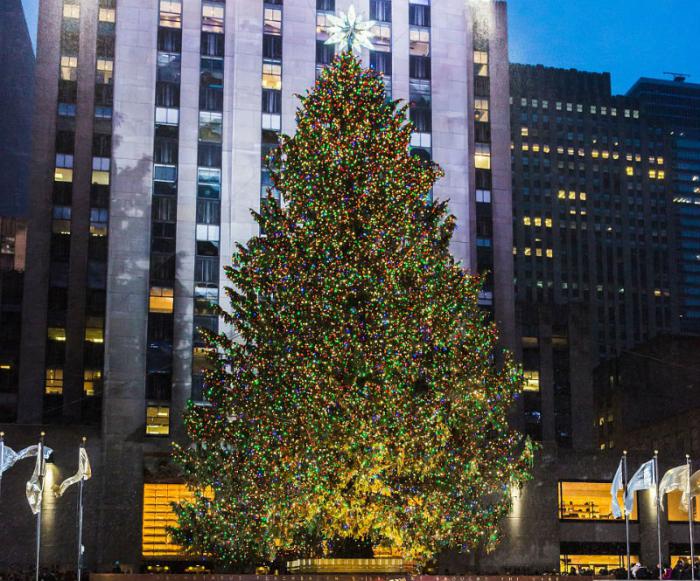
Outside the Rockefeller Building in New York a 78-foot tree weighing ten tons can be found (Alamy stock photo).
In America, the Rockefeller Building boasts a 10-ton, seventy-eight-foot-tall Christmas tree decorated with 45,000 lights.
Fun Fact
In 1931, during the depression-era construction of the Rockefeller center, workers decorated a 20-foot balsam fir with "strings of cranberries, garlands of paper, and even a few tin cans," thus starting the tradition of erecting a Christmas Tree at Rockefeller Center each year!
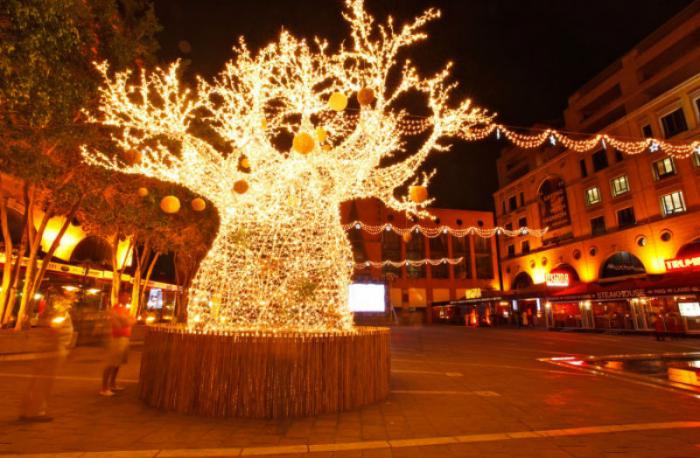
Christmas Baobob Tree in Johannesburg South Africa (Pinterest).
In Sandton, Johannesburg, South Africa, the Christmas Baobob Tree can be found at Nelson Mandela Square. The boabab tree is a more realistic option for Africans to use, and in place of delicate glass ornaments, carved wooded beads are often used.
Each Christmas season in Johannesburg is hot, so in place of hot chocolate and egg nog, South Africans indulge in milk tarts and chilled sparkling wine.
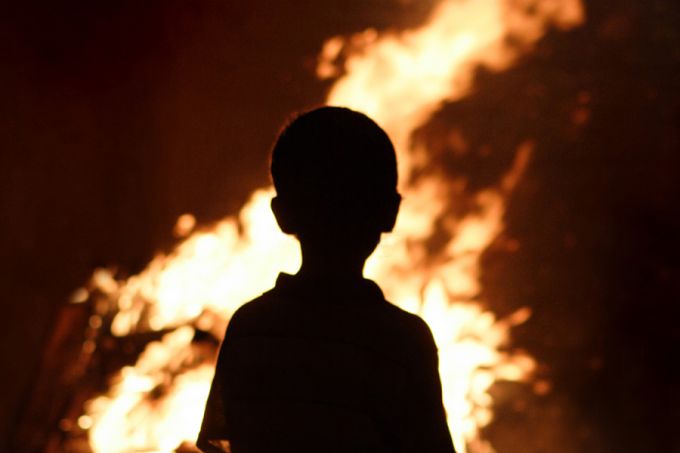
By Matt Hadro
.- A U.S. designation of genocide for ISIS’ actions would offer prompt and significant support to the religious minorities it has targeted, said one researcher, warning that history cautions against inaction.
“It is striking what a difference that word makes,” Gregory Stanton, president of Genocide Watch and a research professor at George Mason University, told the House Subcommittee on Africa, Global Health, Global Human Rights, and International Organizations in his Dec. 9 testimony on Capitol Hill. Stanton’s group studied past use of the terms “genocide” and “ethnic cleansing” in four previous genocides: Rwanda, Bosnia, Kosovo, and Darfur.
They found that if the term “ethnic cleansing” was used to describe atrocities against an ethnic or religious group, no action was taken to stop the violence. However, if the term “genocide” was used publicly, action was subsequently taken to stop the atrocities.
“The reason why it is so powerful,” he continued, “is that ‘genocide’ actually means the destruction of a people.” He added that it “therefore impoverishes the entire human race,” he added, and is a “crime against the entire future of the human race.”
Sara Miller Llana, Christian Science Monitor
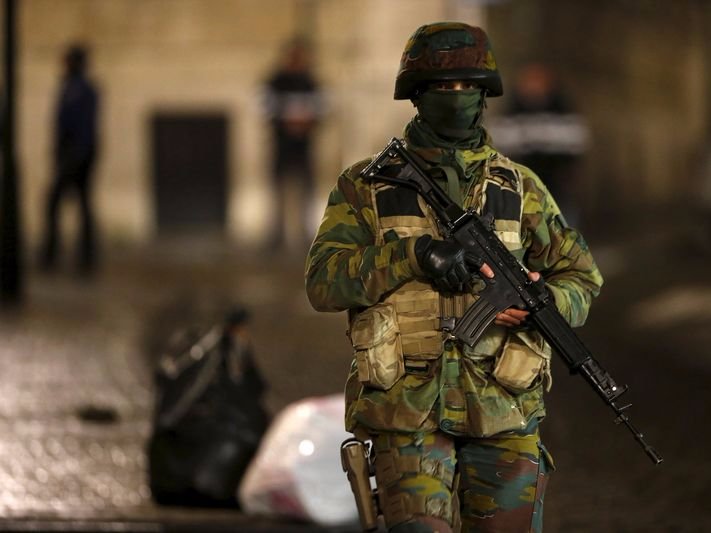
The forces that shape capital cities can often be hard to understand – but Belgium’s case may stand alone.
Brussels is the de facto hub of the European Union, as well as hundreds of other international organizations. In a country whose 11.2 million people are divided between Dutch speakers in the north and French speakers in the south, it maintains a mind-boggling bureaucracy to accommodate rival groups. It is officially bilingual, even though two-thirds of the population are either foreign or of recent foreign origin.
Brussels, to many observers, serves as capital of either a dysfunctional continent or a tiny nation with outsized political problems. But jolted by the ease with which the perpetrators of the Paris attacks slipped between their homes in Brussels and the French capital, Europeans are now demanding an answer to a very basic question: What is it about Belgium that has given it an equally outsized role in terrorism?
